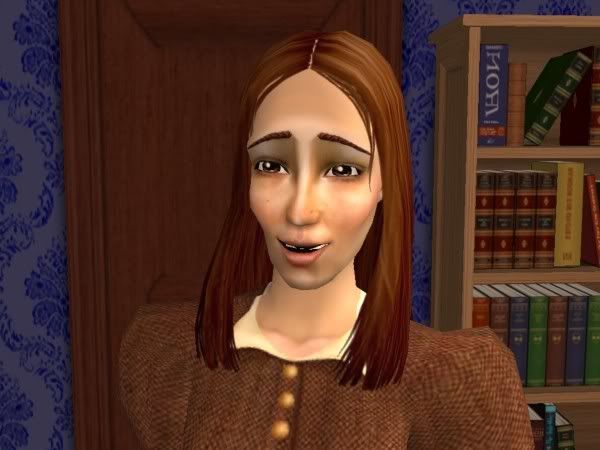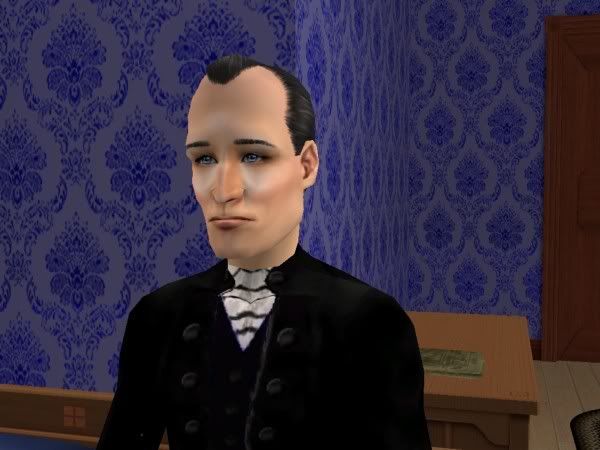 Just as he was beginning to fall asleep, he heard the sound of an infant's reluctant cry. His eyes snapped open and he came to stand by the door. He wished he could come in, he wished he could see the child, but all he could hear was Dr. Pershing and his wife moving hurriedly around the room.
Just as he was beginning to fall asleep, he heard the sound of an infant's reluctant cry. His eyes snapped open and he came to stand by the door. He wished he could come in, he wished he could see the child, but all he could hear was Dr. Pershing and his wife moving hurriedly around the room."A swab, Janet," Dr. Pershing was directing their maid.
There was more clatter and then, "You could bring him out, now."
There were sudden footsteps towards the door and it was thrown open. Mrs. Pershing held a baby in her arms. She pushed him back before he could see more than a glimpse of Maria.
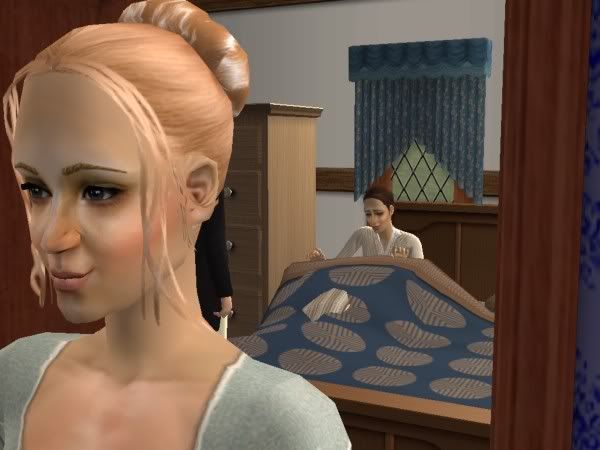 "It's a boy!"
"It's a boy!"It was, a small, pale one with surprisingly pale hair. Father Bede took him.
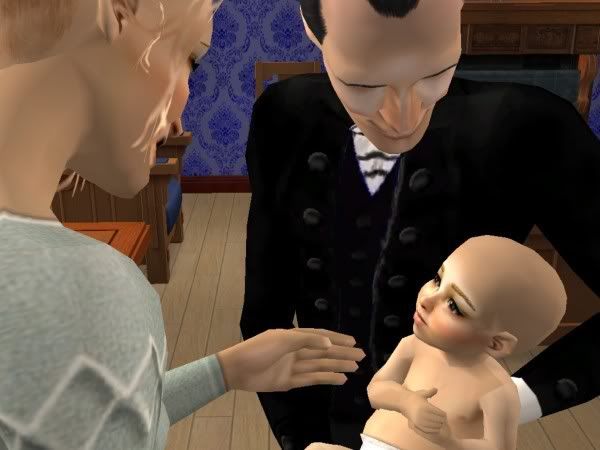
"How is she?"
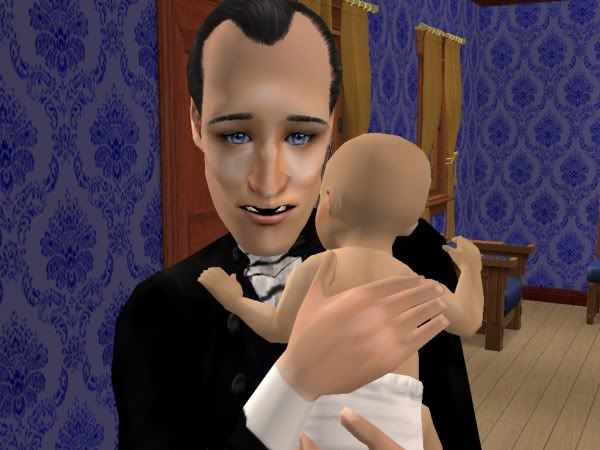 "Maria? Tired. Let us clean her up and then you can see her."
"Maria? Tired. Let us clean her up and then you can see her."His anxiety must have been evident, for she said, in a kind, managerial sort of tone, "Why don't you show him to Maria's aunt? She would love to see him..."
Father Bede nodded carefully, the warm, wet weight of his son in his arms. Elijah, they had agreed.
Aunt Wilcox had been sent to bed around midnight on the pretense that the baby wasn't coming any time soon. This was really an excuse to get her and her senseless chatter out of the way, but she had swallowed it easily enough and gone to bed. Father Bede thought this was just as well considering Maria's state during her heaviest labor with Matthew. It was best to get her aunt out of throwing range. Come to think of it, he wondered why there had been no such fury this time.
He came into the room quietly, for he had no free hand to knock and did not want to call out for fear of waking the baby now sleeping on his shoulder. But Maria's aunt lay sound asleep, and so he called out to her. "Aunt Wilcox?"
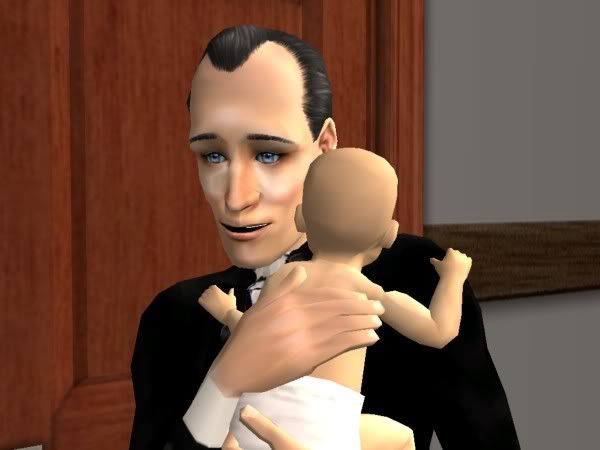
There was no response. For a moment he thought to call her by her Christian name, but then the odd feeling that had been floating around the tired mist in the back of his brain hit him fully.
Aunt Wilcox was a terrible snorer, so much so that he and Maria could hear her from their room. The room was perfectly quiet now.
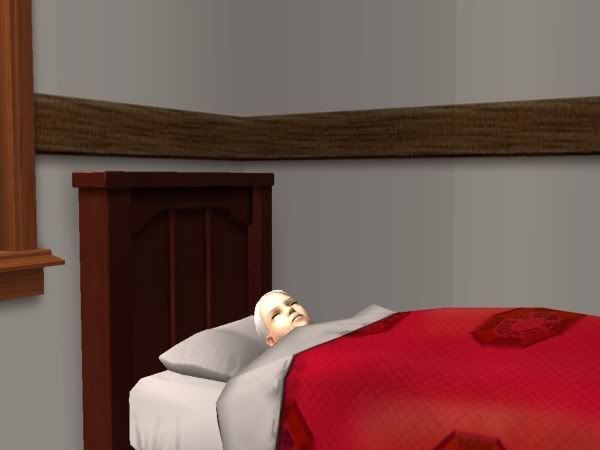
All at once he understood. He did not have to come closer, or even to touch her, though he would have found her cold. There was something about the stiffness of her features and the limpness of her body that told him.
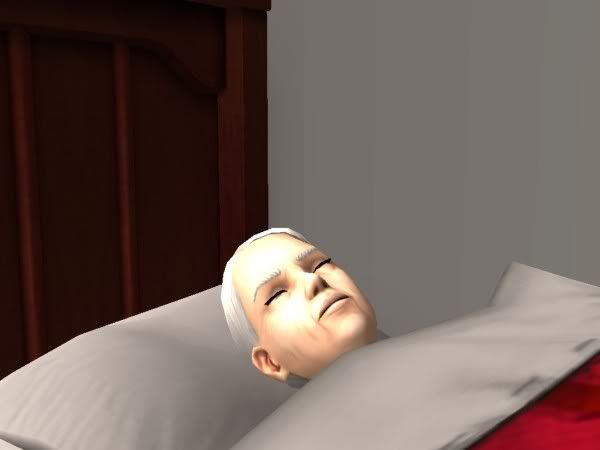
"Oh, I suppose you can come in now," said Mrs. Pershing. She was fussing with the pillows on their bed. Maria was looking tired but otherwise fine as she lay on one side of it. She was indeed only tired, and he smiled at her in relief. Better yet, she smiled back. Father Bede handed Elijah to Mrs. Pershing. He turned to the Doctor.
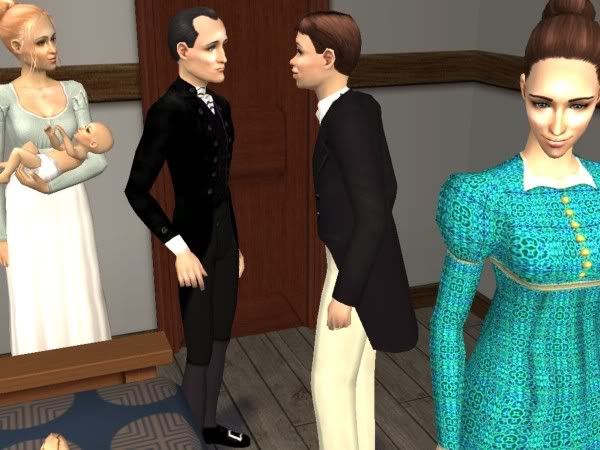 "Could I speak to you outside?" he murmured.
"Could I speak to you outside?" he murmured. It would be a be a busy day for the doctor and a busy week for him.
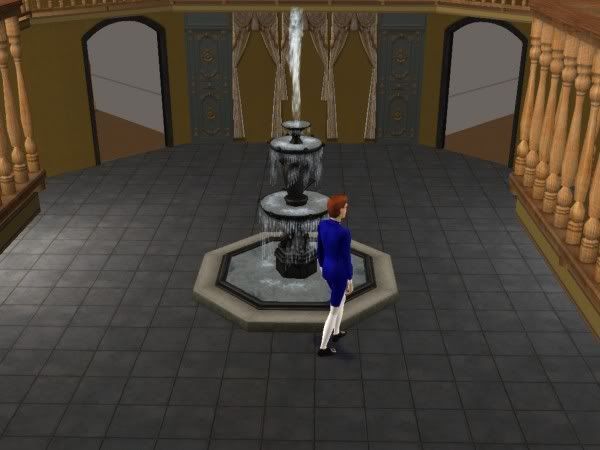
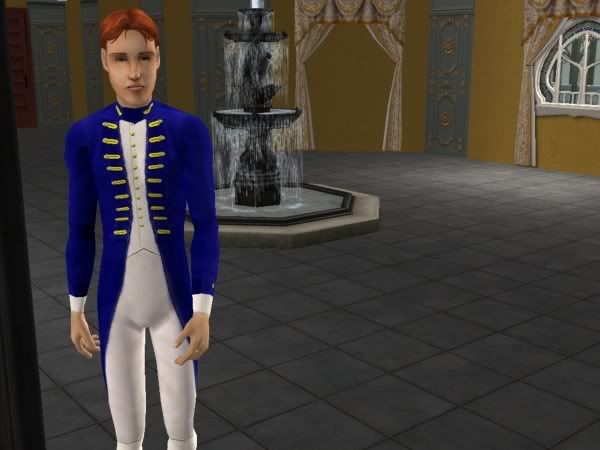
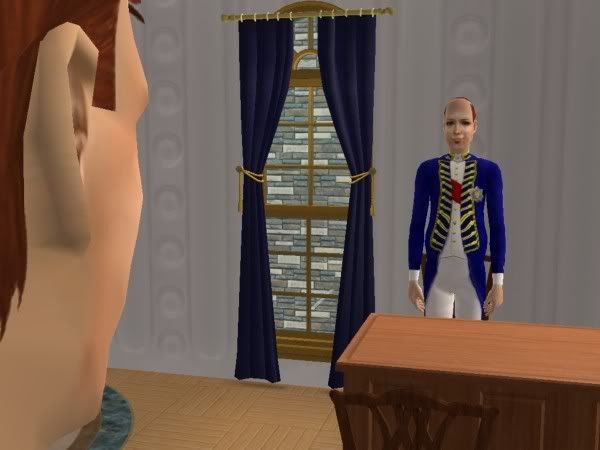 Vice-Admiral Sir Horace Hennet was simply a small, balding man with an outdated mustache and thinning auburn hair. He was giving Frederick a studied look, but he seemed satisfied."Good Morning, Sir Frederick."
Vice-Admiral Sir Horace Hennet was simply a small, balding man with an outdated mustache and thinning auburn hair. He was giving Frederick a studied look, but he seemed satisfied."Good Morning, Sir Frederick."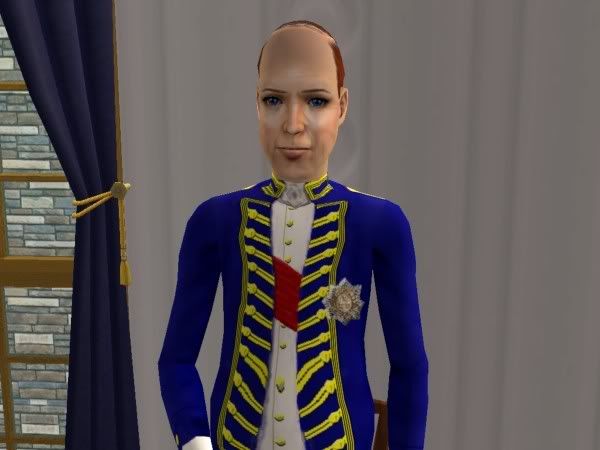 "Good Morning, Sir."
"Good Morning, Sir."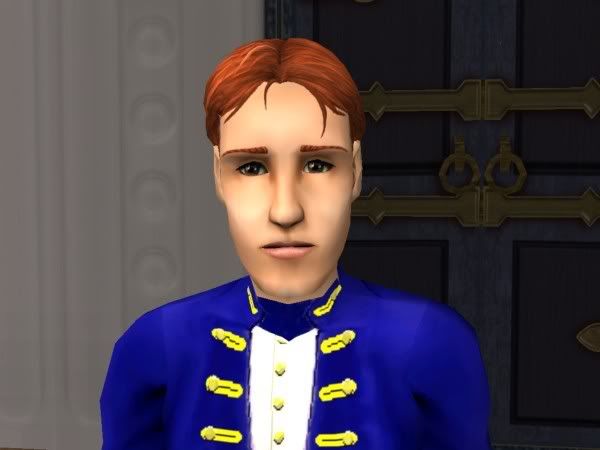 "What did Lord Harbries tell you about your position? I was under the impression you understood what you were going to be doing."
"What did Lord Harbries tell you about your position? I was under the impression you understood what you were going to be doing."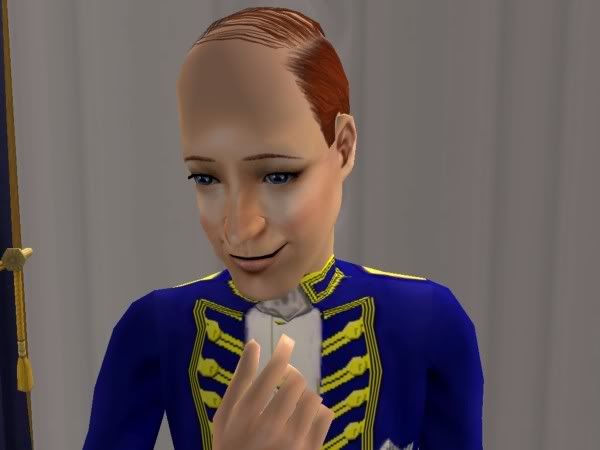 "No, thank you."
"No, thank you."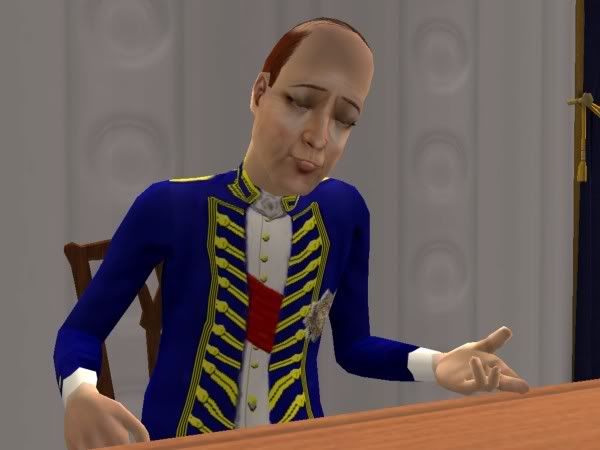 "What was his idea?" said Fredrick, unusually impatient.
"What was his idea?" said Fredrick, unusually impatient.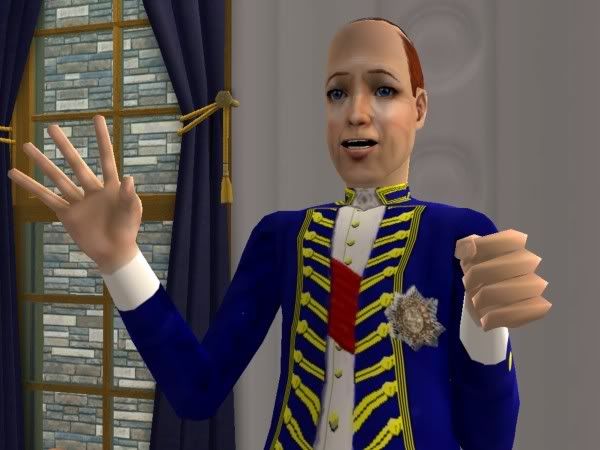 "Please, sir," said Frederick. "What is my position?"
"Please, sir," said Frederick. "What is my position?"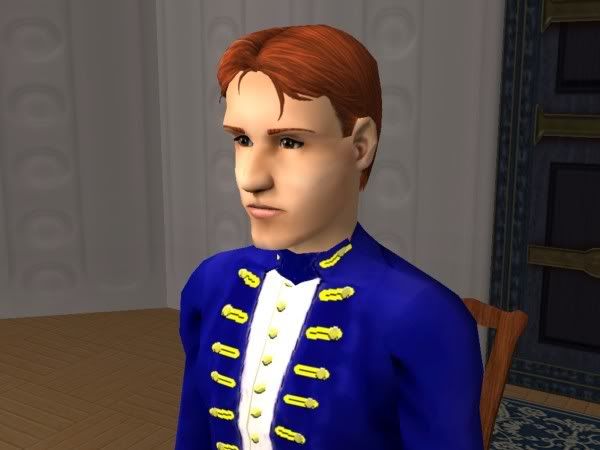 "Well, of course you must have realized we've always had such things." said Sir Horace.
"Well, of course you must have realized we've always had such things." said Sir Horace.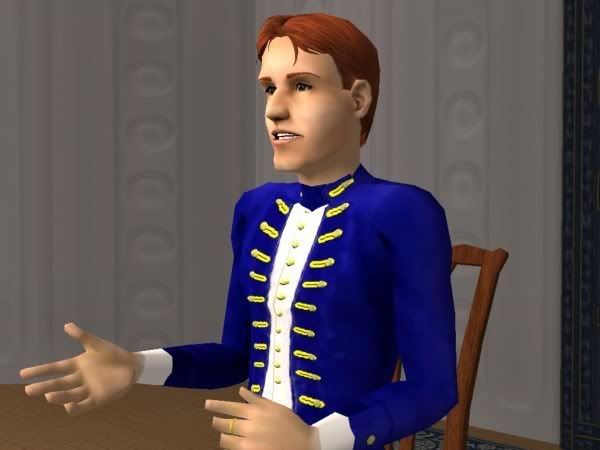 "It's fairly simple," said Sir Horace. "You take the ship just to the edge of where it will not be seen. Then you send men in a smaller ship to search the coastline. I'm afraid we only found one that speaks french, but anyhow if you take nets and civilian clothes you shall pass off as fishermen. Not that you will be seen, most likely. And when you have discovered a place or activity of interest--we are looking for supply ships, ports, even the smallest inlet that harbors a ship or two--you will return and let a scout ship know. There are three others of your kind, one further North and one near Spain. And with some luck you will help us discover where Napoleon is hiding all those damn ships."
"It's fairly simple," said Sir Horace. "You take the ship just to the edge of where it will not be seen. Then you send men in a smaller ship to search the coastline. I'm afraid we only found one that speaks french, but anyhow if you take nets and civilian clothes you shall pass off as fishermen. Not that you will be seen, most likely. And when you have discovered a place or activity of interest--we are looking for supply ships, ports, even the smallest inlet that harbors a ship or two--you will return and let a scout ship know. There are three others of your kind, one further North and one near Spain. And with some luck you will help us discover where Napoleon is hiding all those damn ships."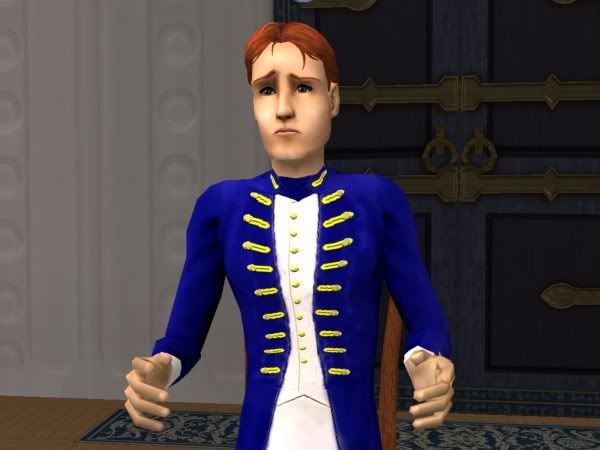 "Well he heard about you past actions, of course. Quite commendable."
"Well he heard about you past actions, of course. Quite commendable."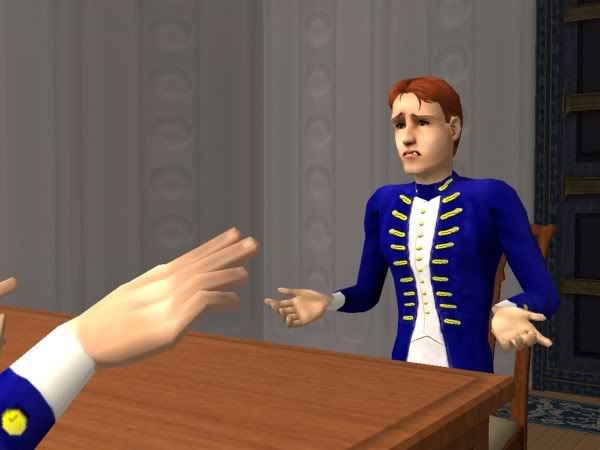 "Are there? But anyhow, there is another advantage. We are not the only nation to employ subterfuge. The less well known you are the less likely anyone will wonder whether we have employed you in such measures. And as far as Lord Harbreis could tell, you spent most of your time at home with a reclusive and gloomy Earl of a small town. What could be more ideal?"
"Are there? But anyhow, there is another advantage. We are not the only nation to employ subterfuge. The less well known you are the less likely anyone will wonder whether we have employed you in such measures. And as far as Lord Harbreis could tell, you spent most of your time at home with a reclusive and gloomy Earl of a small town. What could be more ideal?"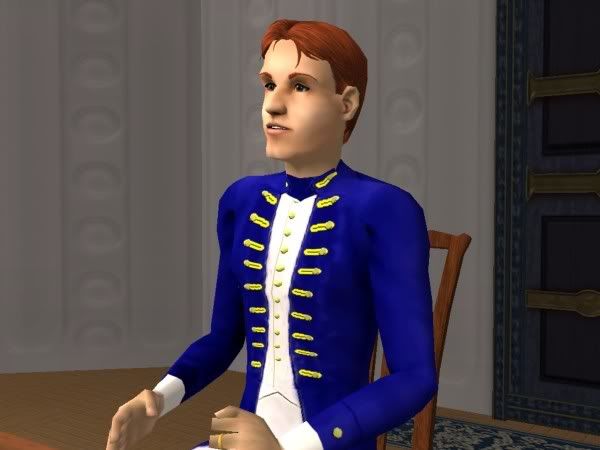 "Good day, Sir Frederick," said Sir Horace and he lazily lit his pipe.
"Good day, Sir Frederick," said Sir Horace and he lazily lit his pipe.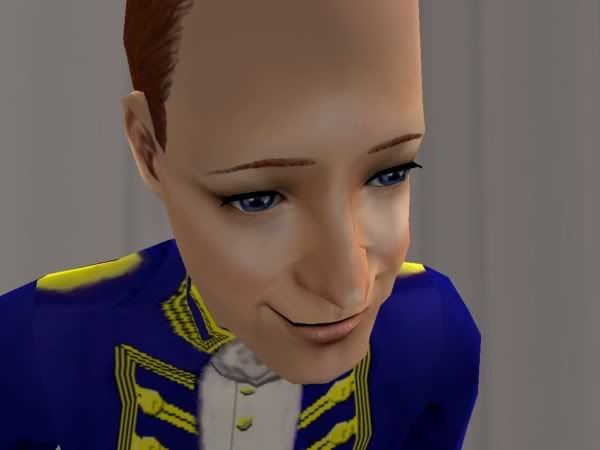
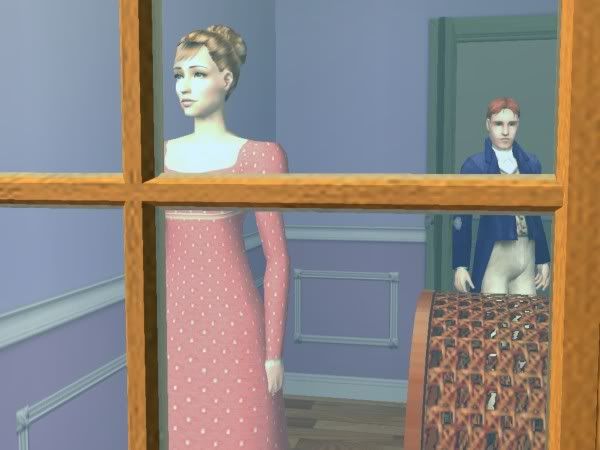
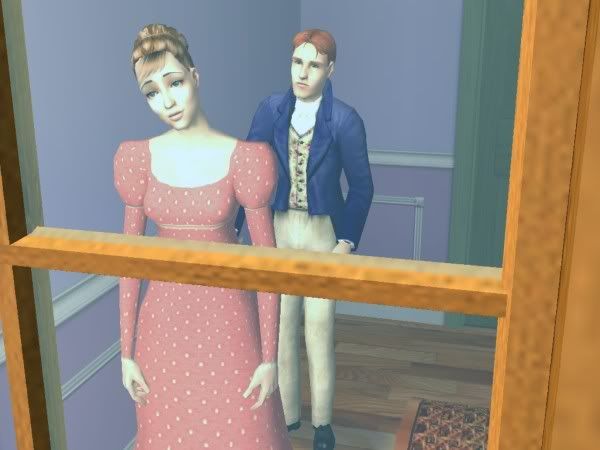 He did not have to hear her bewail his decision, and Henrietta was proud of that. When he was done talking, (she could not remember what he said) he put his arms arond her and she buried her face in his shoulder. It was the only thing that comforted her.
He did not have to hear her bewail his decision, and Henrietta was proud of that. When he was done talking, (she could not remember what he said) he put his arms arond her and she buried her face in his shoulder. It was the only thing that comforted her.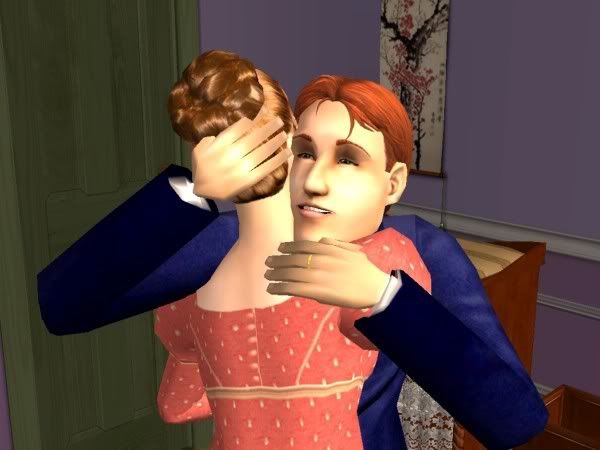 He would not leave until early November, and so at first she felt safe. November was remarkably slow in coming, up until the day it came, and then it had been over in an instant.
He would not leave until early November, and so at first she felt safe. November was remarkably slow in coming, up until the day it came, and then it had been over in an instant.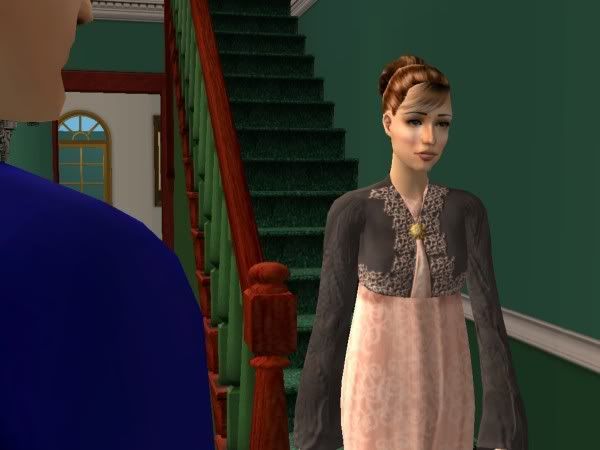 They stood in the front hall and he kissed her and told her to kiss Lexa each day for him, and that the Earl would recieve all his letters and bring her hers. But even as he spoke to her Henrietta felt oddly empty, as if he were already gone. She struggled to savor a last moment that had somehow already slipped away.
They stood in the front hall and he kissed her and told her to kiss Lexa each day for him, and that the Earl would recieve all his letters and bring her hers. But even as he spoke to her Henrietta felt oddly empty, as if he were already gone. She struggled to savor a last moment that had somehow already slipped away.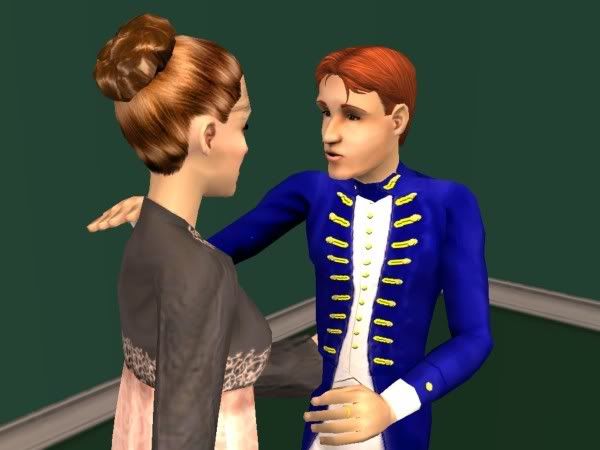
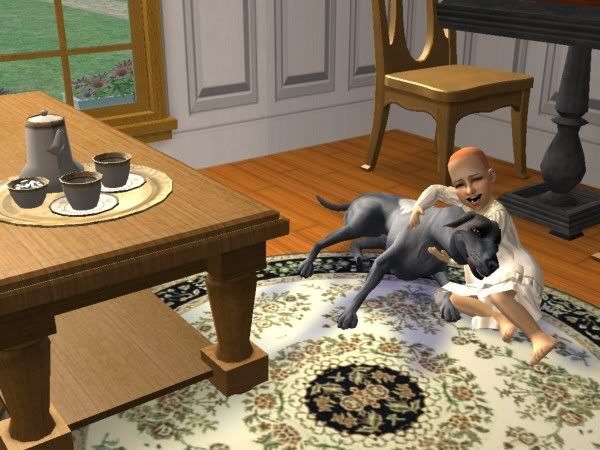
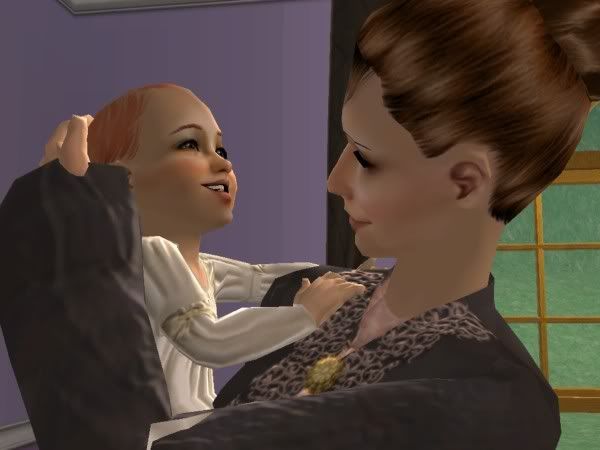
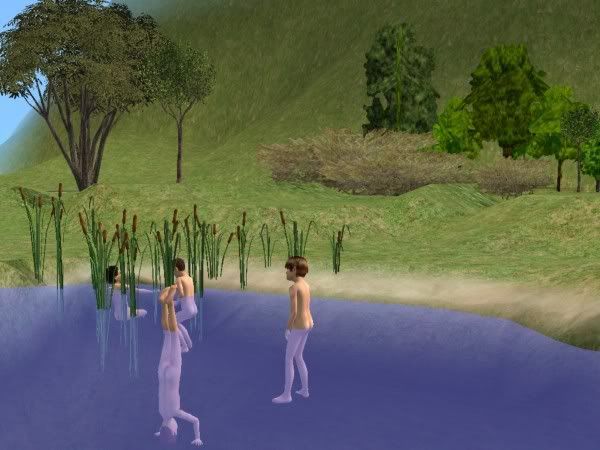

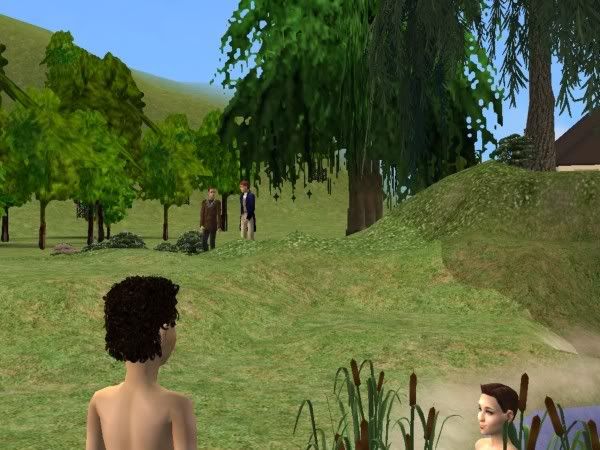
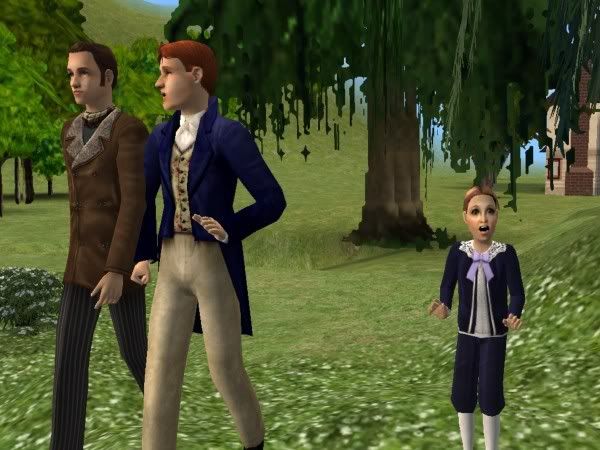 "That's the Earl and Sir Frederick." Jemmy said behind him.
"That's the Earl and Sir Frederick." Jemmy said behind him.
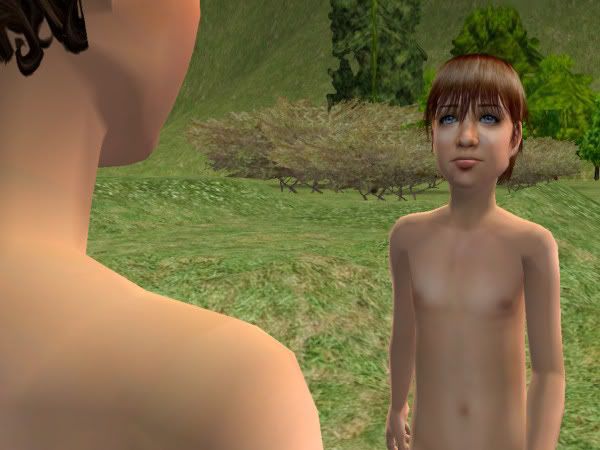

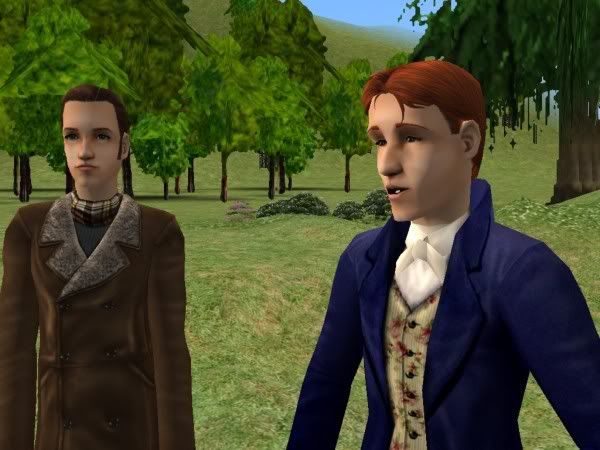


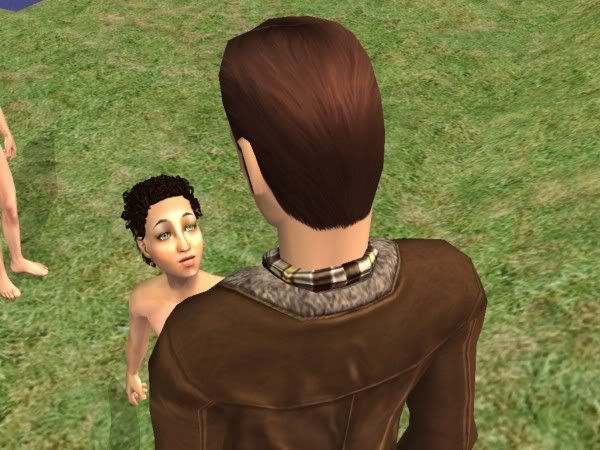
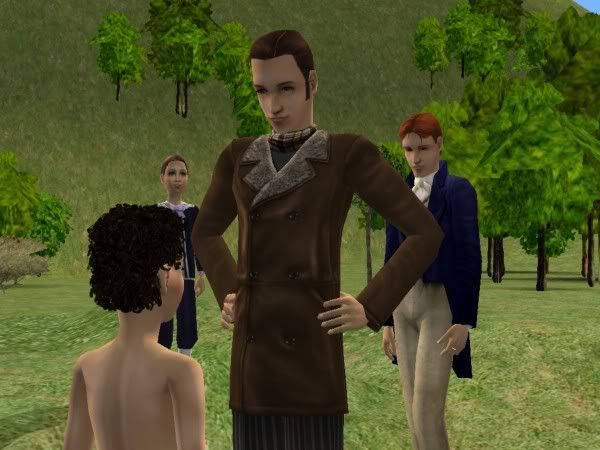
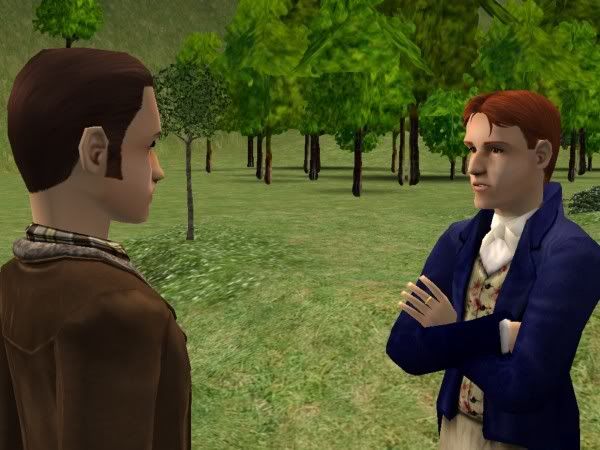
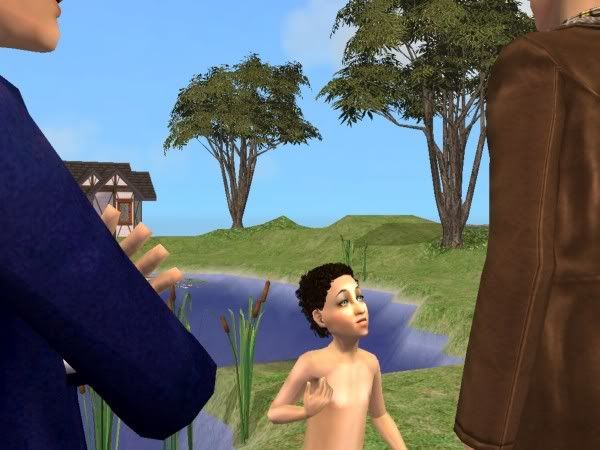
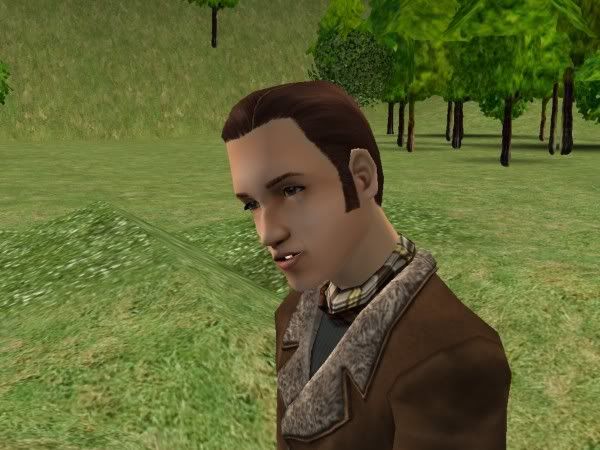 He turned to Sir Frederick. "I've got to get home and then to town," said the Earl.
He turned to Sir Frederick. "I've got to get home and then to town," said the Earl.

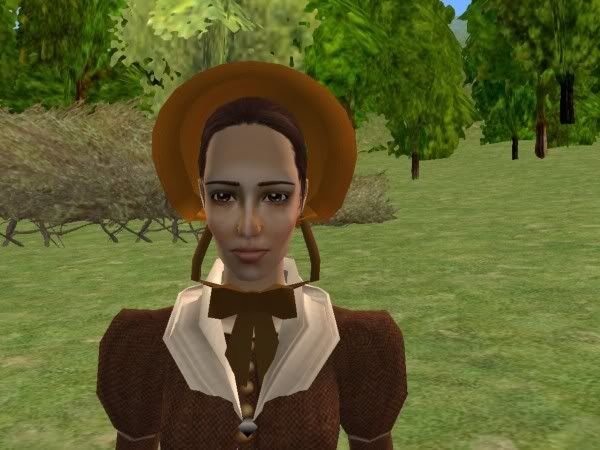
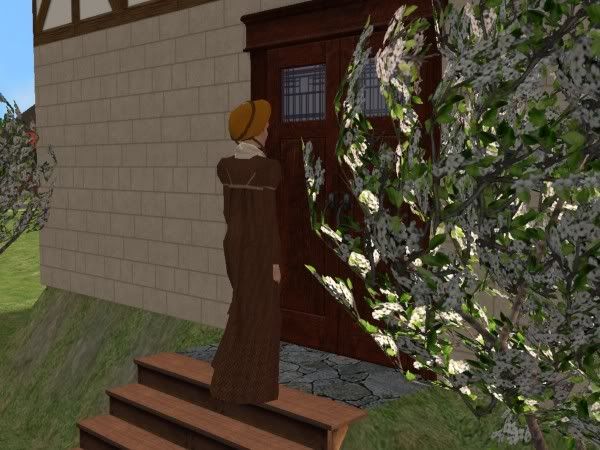
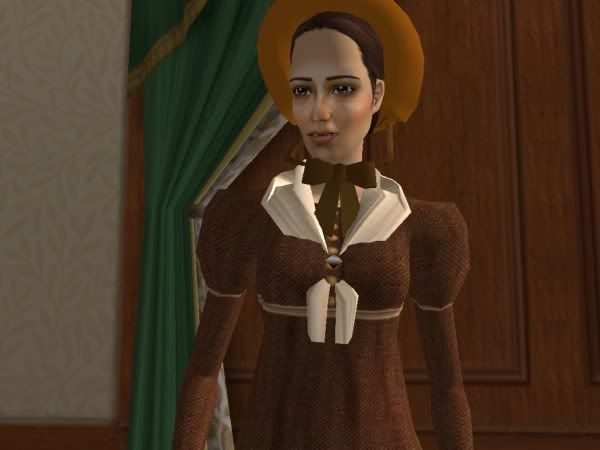
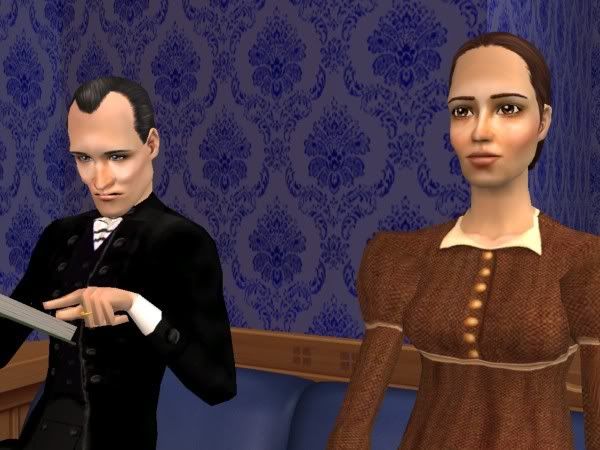
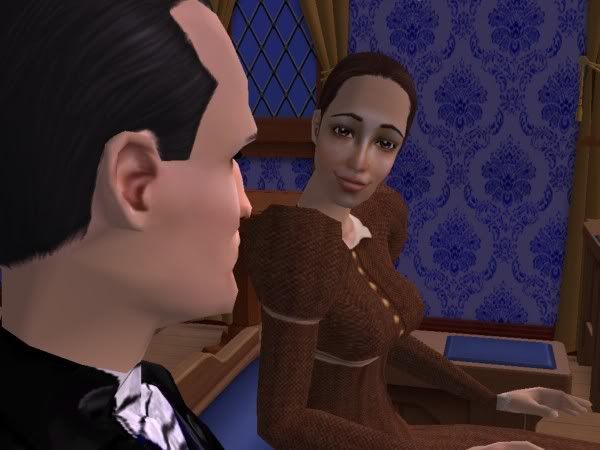
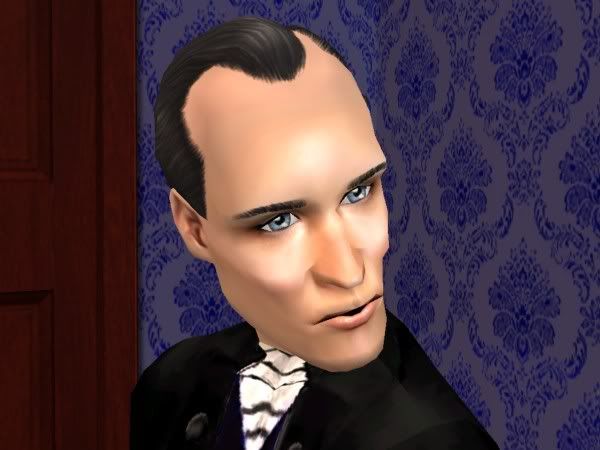
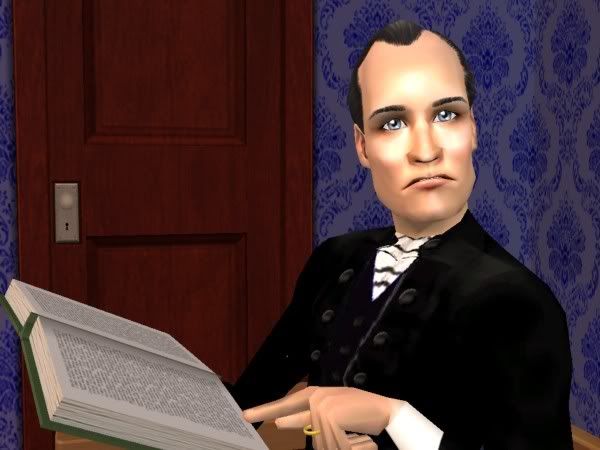
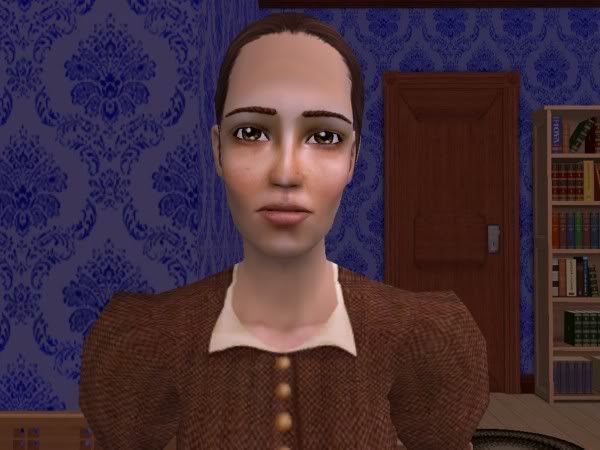
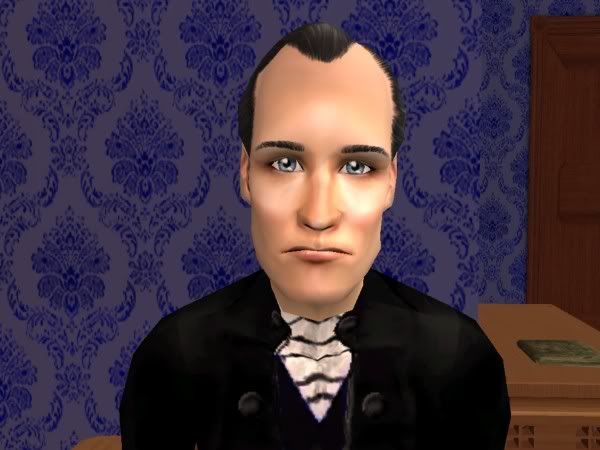
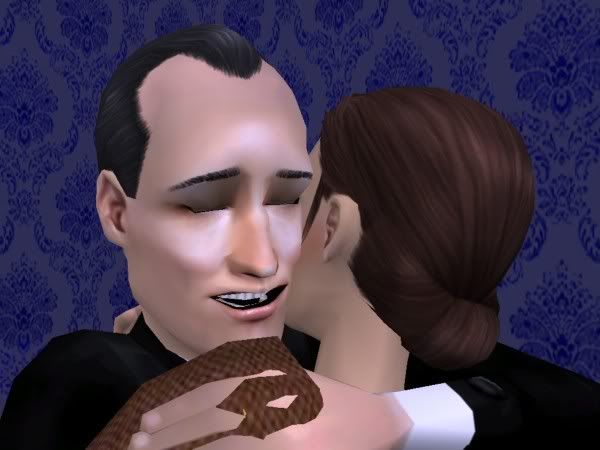
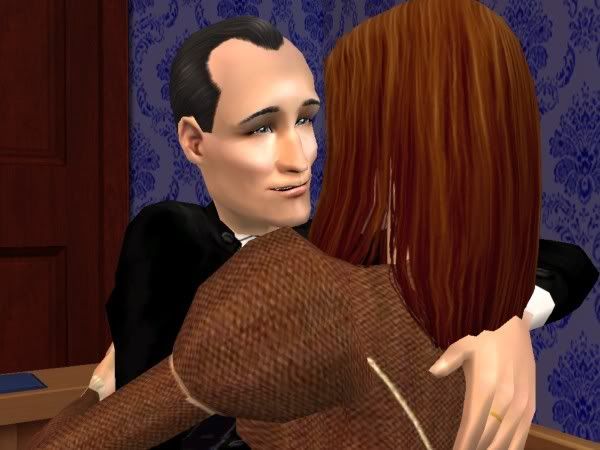 Then she took her other pins from his hand and without meeting his eyes went towards their bedroom. He was disapointed again--as he was every night.
Then she took her other pins from his hand and without meeting his eyes went towards their bedroom. He was disapointed again--as he was every night.